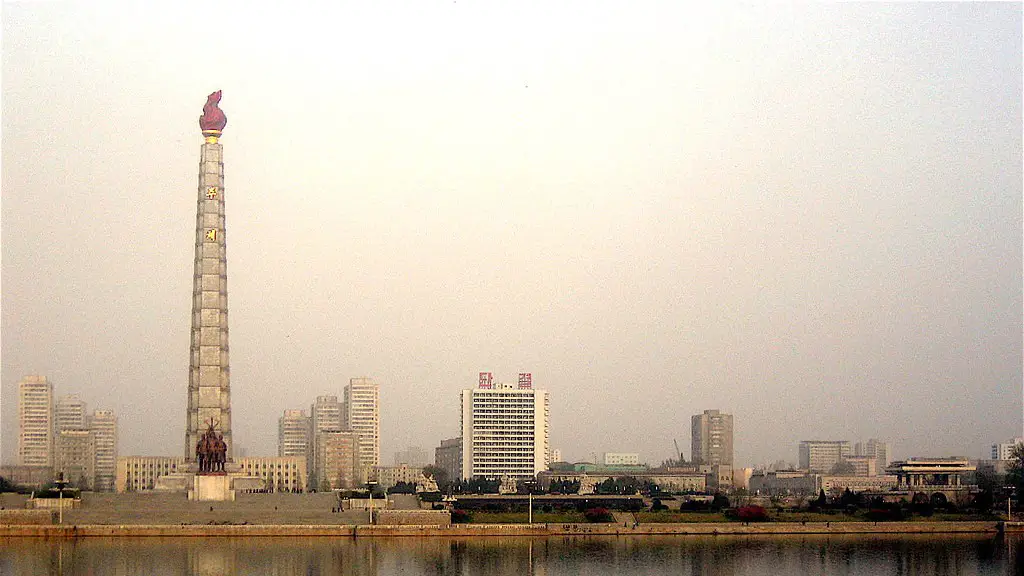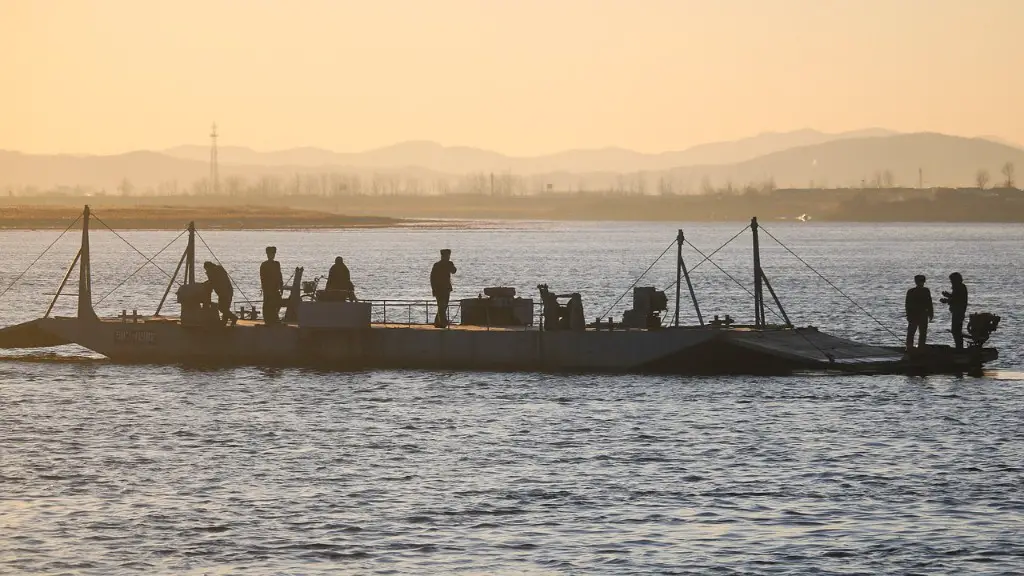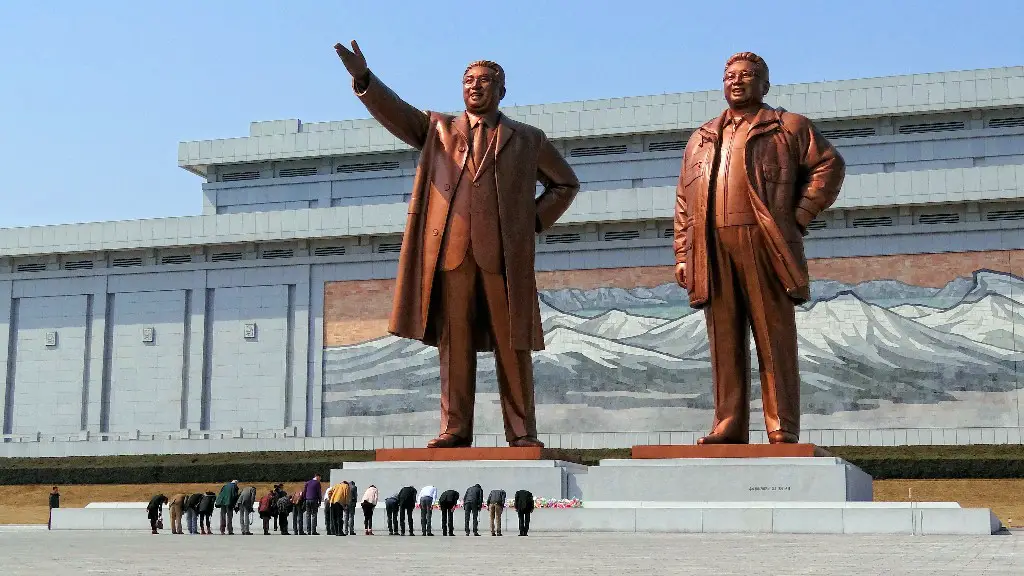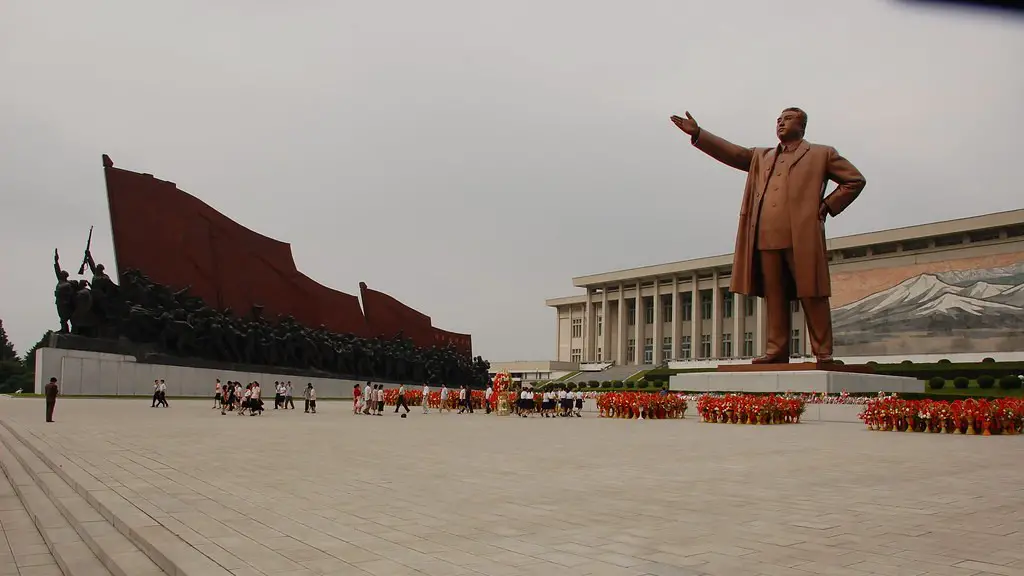For many years, China has taken a cautious approach toward its neighbor, North Korea. China has maintained a close relationship with North Korea while attempting to remain open and constructive in its relations with the United Nations and the United States. Although the Chinese stance on North Korea has recently shifted, much remains unclear about their relationship.
Since the North Korean nuclear issue began to emerge in the early 2000s, China has been actively engaged in the six-party talks with the United States, Russia, Japan, South Korea and North Korea. Although initially opposed to U.N. sanctions, China has gradually agreed to, and even pushed for, harsher sanctions on North Korea. For instance, in 2016, China, for the first time, imposed restrictions on North Korean coal exports, resulting in a dramatic decrease in North Korean exports.
China has also been taking steps to put pressure on North Korea. China has been cutting coal imports and other trade with North Korea, in an effort to stop their progress with their nuclear programs. In addition, China has recently been increasing its defense on the Korean border and also increased its military presence in the region. However, China has been very careful to avoid directly confronting North Korea. This is evidenced by the fact that China remains North Korea’s closest ally and top trading partner, even with all the international sanctions against the hermit nation.
Though China has taken steps to put pressure on North Korea, many experts remain concerned about China’s long-term goals. While China has supported a denuclearized Korean Peninsula, some experts believe that China’s motivation is ultimately to maintain the status quo and maintain North Korea’s independence and their leverage over the region. Other experts believe that a unified Korea, free of nuclear weapons, is the best option for both the region and China. This raises the question of whether China is willing to pressure North Korea to denuclearize, or if it is simply taking a wait-and-see approach.
It is difficult to predict the future of North Korea and its relationship with China, but some experts believe that the recent diplomatic developments could indicate a shift in China’s stance. In January 2021, China hosted the first ever high-level diplomatic dialogue between the United States and North Korea in Beijing. This could be a sign that China might be ready to take a more active role in the peace process. Also, in April 2021, a member of the Chinese Communist Party visited North Korea’s Foreign Ministry, signalling that the two countries may be closer to a comprehensive agreement.
Despite the uncertainty, it is clear that China has been, and continues to be, a key player in the diplomatic process surrounding North Korea. The Chinese leadership has shown an interest in preventing further escalation of tension and have taken steps to put pressure on North Korea, while also attempting to maintain a constructive relationship with the United Nations and other international entities. As the diplomatic process progresses, it will be important to monitor China’s stance and the impact that it may have on the region.
Russian Relations
North Korea has a longstanding relationship with its neighbor and ally, Russia. This relationship has deepened in recent years, with Russia providing economic aid and support to North Korea, despite the sanctions imposed by the United Nations. Russia has also increased its military presence along the border between the two countries and has made an effort to strengthen diplomatic ties. It is clear that Russia has an interest in maintaining the status quo in North Korea, as it serves their geopolitical interests in the region.
Russia has also been an active participant in the diplomatic process surrounding North Korea. In 2017, Russia hosted talks between North Korea and the United States in Vladivostok, indicating a willingness to play a role in the resolution of the nuclear crisis. In August 2020, Russia was one of the countries to sign a joint statement with the United States and North Korea on the denuclearization of the Korean peninsula.
It is difficult to tell what Russia’s ultimate goal is in regards to North Korea. Some experts believe that Russia is trying to promote a more peaceable resolution to the crisis, while others argue that Russia is simply trying to ensure the survival of its ally, Kim Jong Un. The Russian stance on North Korea has been largely consistent in the past and it is likely that the Kremlin will continue to be a key player in the future.
Chinese Economic Instruments
China has a multitude of economic tools at its disposal when dealing with North Korea. While the United Nations has imposed sanctions on North Korea, China has been more open to deploying additional economic measures. China has long been North Korea’s largest trading partner and has considerable influence over North Korea’s economy.
In recent years, China has imposed restrictions on North Korean exports, resulting in a dramatic decrease in foreign exchange earnings for North Korea. China has also taken steps to limit investments from Chinese companies in North Korea and has suspended certain types of financial transactions. Although these measures have been somewhat effective, they have largely been targeted at the North Korean people, rather than the ruling regime.
China’s economic measures also have an effect on the international community. The US and its allies have pushed for further economic sanctions on North Korea, but these sanctions have put China in a difficult position, as they risk further damaging relations between the two countries. This has made it harder to reach a diplomatic resolution to the crisis.
South Korean Diplomacy
South Korea has also been actively involved in diplomatic efforts surrounding North Korea. In particular, South Korea has attempted to use its influence to promote dialogue between North Korea and the international community. South Korea has been an integral part of the six-party talks and has hosted several meetings between North Korea and the United States.
South Korea has also attempted to use its economic clout to pressure North Korea. In 2017, South Korea implemented an economic freeze on North Korea, which included a ban on the import of North Korean coal and other natural resources. South Korea has also pushed for further sanctions on North Korea, such as restrictions on the sale of North Korean weapons, and has cut off financial aid to the hermit nation.
Despite these efforts, however, it is unclear if South Korea can have an impact on the diplomatic process. South Korea lacks the same level of economic power as China and the United States, and has to contend with the mistrust and hostility of the North Korean regime. South Korea will likely continue to be an active participant in the diplomatic process, but it is unclear how much influence it will be able to exert.
Japanese Diplomatic Role
Japan has been a prominent player in the diplomatic process surrounding North Korea. Japan has been a strong proponent of international sanctions and has sought to ensure that the international community takes a hard line against North Korea. Japan has also hosted several meetings between North Korean and U.S. officials, and in 2018, Japan was the first country to sign onto the U.N.’s sanctions against North Korea.
The Japanese stance on North Korea has been tempered by its concerns of security. Japan has long been a target of North Korean missiles and has taken steps to increase its own defensive capabilities. Japan has also sought to strengthen its economic ties with South Korea, in an effort to balance North Korea’s influence in the region.
Despite its strong stance on North Korea, Japan has been relatively restrained in its diplomatic efforts. Japan has generally avoided direct confrontation with North Korea and instead opted for a strategy of encouraging dialogue and peaceful resolution. This cautious approach has been criticized by some, but is likely to remain for the foreseeable future.




